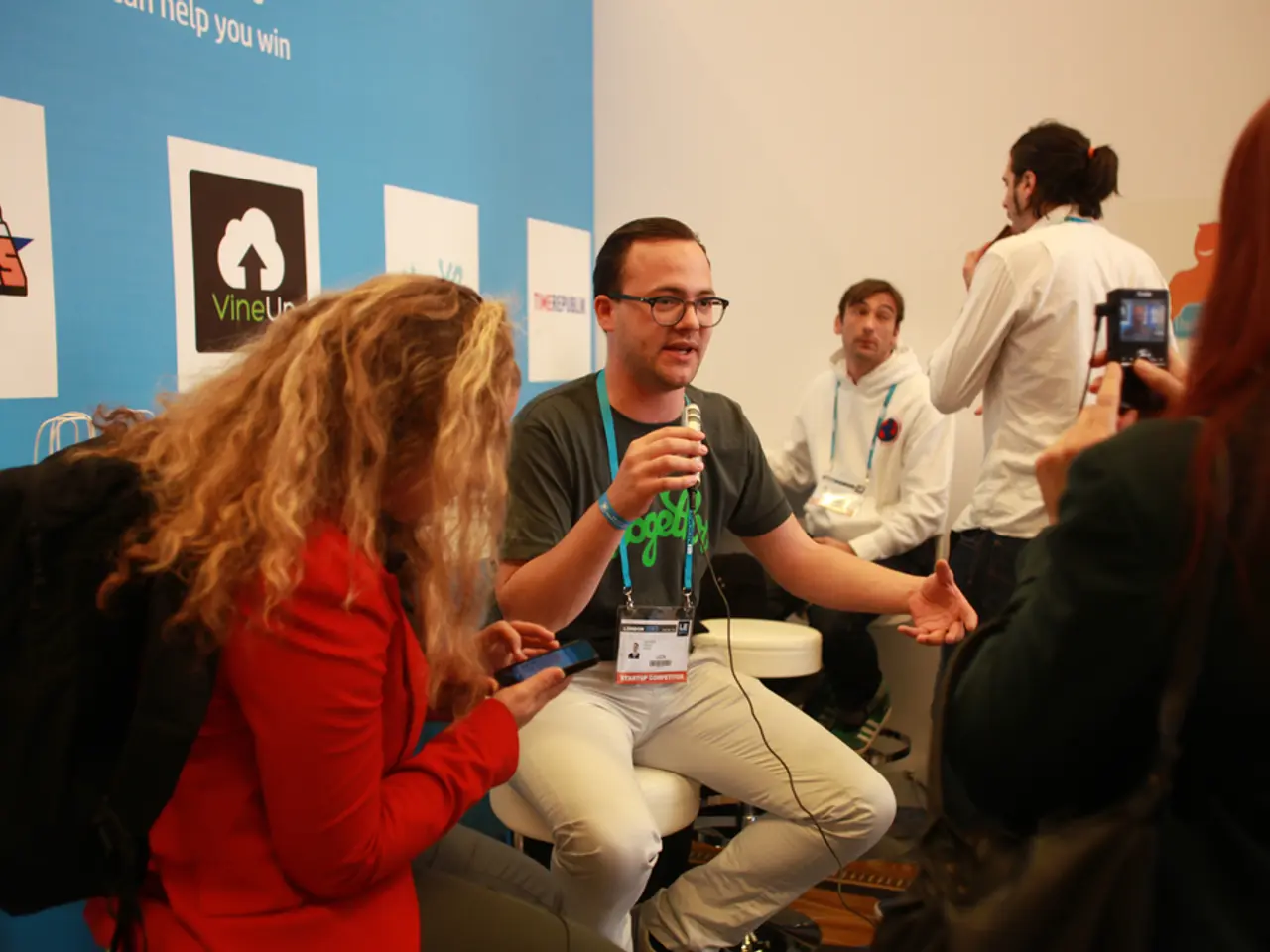Important aspects for employers with share schemes to help their workers grasp
Employee share plans are becoming increasingly popular among businesses as a means of recruiting, retaining, and motivating staff. These plans offer various benefits, including tax advantages and the potential for long-term financial gain. Here, we will explore some of the most common types of employee share plans and their key features and benefits.
Share Incentive Plans (SIPs)
SIPs are a popular employee share plan that allows employees to receive shares, which they must hold for at least 5 years to enjoy tax benefits. Shares can be awarded as free shares (up to £3,600 tax-free per year), partnership shares purchased from gross salary (up to £1,800 or 10% of income), matching shares (employer matches partnership shares up to 2-for-1), and dividend shares (reinvest dividends into shares).
The tax benefits of SIPs are substantial. If shares are held for at least 5 years, no income tax or National Insurance Contributions (NICs) are payable. Dividend shares held for 3 years are also free from income tax. This encourages long-term share retention by employees.
Save As You Earn (SAYE) / Sharesave Scheme
SAYE schemes are another popular type of employee share plan. Employees save up to £500 per month over a fixed period (3 or 5 years). At the end, they can use their saved money to buy shares at a pre-agreed price, usually with a discount up to 20%.
The tax benefits of SAYE schemes are particularly attractive. No income tax or NICs are payable on the difference between the discounted purchase price and market value at exercise. Capital Gains Tax (CGT) might apply upon sale, but can be mitigated by transferring shares to an Individual Savings Account (ISA), pension, or using the annual CGT allowance. Employers also benefit from corporation tax deductions and avoid employer NICs on the discount.
Company Share Option Plans (CSOPs)
CSOPs allow employees to receive options to buy shares at a fixed price after a vesting period. Options usually have a 10-year life span. No income tax or NICs are payable when options are granted or exercised if HMRC conditions are met. CGT applies on sale of shares but with the benefit of Entrepreneurs’ Relief or other reliefs reducing the rate.
Enterprise Management Incentives (EMIs)
EMIs are tax-advantaged share options for smaller companies (under specific conditions). Employees receive options to buy shares with various flexible vesting and exercise terms. No income tax or NICs are payable on grant or exercise if within limits and conditions are met. CGT applies on sale of shares, often at reduced rates.
Phantom Stock Plans
Phantom stock plans are cash bonus plans linked to the value or appreciation of company shares rather than actual stock issuance. There are full-value and appreciation-only types. These plans are typically treated as income when paid out (subject to income tax and NICs), so they lack the tax incentives of ownership plans.
Employee Stock Purchase Plans (ESPPs)
ESPPs are primarily relevant in the U.S. context but can provide useful insights. These plans allow employees to buy company shares often at a discount via payroll deductions. Qualified ESPPs offer tax deferral and advantage, including purchasing shares with pretax dollars and potentially favorable capital gains treatment on sale after holding periods. Non-qualified plans have different, usually less favorable tax treatment.
In summary, most employee share plans provide tax benefits such as exemption from income tax and NICs on shares acquired or options exercised (subject to conditions), and potential capital gains tax advantages if employees hold shares long-term. SAYE schemes are particularly favored for tax-free discount benefits, while SIPs encourage long-term shareholding with no income tax or NICs if conditions are met. Phantom stock plans offer economic participation without actual share ownership but lack equivalent tax incentives.
Employers may also provide matching shares with SIP. Financial education and guidance can improve financial resilience and wellbeing, and access to Workplace ISAs can help employees understand the real value of share plans. A lack of understanding of how a share plan works can be a barrier to employees joining a plan, but financial education and guidance, as well as access to Workplace ISAs, can make a difference in enabling employees to build an understanding of share plans.
With the SIP, there is a National Insurance contribution and income tax saving, as contributions are made from pre-tax income. Tax efficiency can be maximized by linking shares coming out of a SAYE to an ISA. Some employers offer access to Workplace ISAs to mitigate tax.
Employee share plans can motivate and incentivize employees, potentially building financial resilience. If the share price is higher than the option price at the end of the plan, the employee can buy the shares below their market value. If the share price falls below the 'option price', the employee can receive all of their savings back. Employers may provide support in understanding the different share plans available and the choices upon release. Access to Workplace ISAs can be provided to mitigate tax. Any gains on shares held in a SIP are free from income tax and CGT as long as they are held in the plan for at least 5 years.
Employees can save between £5 and £500 per month over a three or five-year period with SAYE. The most popular type of share plan offered by companies is Save As You Earn (SAYE), also known as Sharesave. Many leading employers provide financial education and guidance on share plans and choices upon release. Many employers offer a fixed 'option price' which is set at a discount of up to 20% of the actual share price at the start.
[1] Source: HM Revenue & Customs (HMRC) - Employee Share Schemes Manual [2] Source: Association of British Insurers (ABI) - Employee Share Ownership Trusts (ESOTs) [3] Source: The Share Plan Centre - Phantom Share Options [4] Source: Internal Revenue Service (IRS) - Employee Stock Purchase Plans (ESPPs)
Personal finance and education-and-self-development intersect in employee share plans, a popular strategy among businesses for recruiting, retaining, and motivating staff. For instance, Save As You Earn (SAYE) schemes allow employees to save up to £500 per month over a fixed period (3 or 5 years) to buy shares at a pre-agreed price, enjoying tax advantages like no income tax or National Insurance Contributions (NICs) on the difference between the discounted purchase price and market value at exercise. Similarly, Share Incentive Plans (SIPs) offer tax-free shares up to £3,600 per year to employees, encouraging long-term share retention with no income tax or NICs if conditions are met. Therefore, learning about these employee share plans can contribute significantly to personal-finance know-how and self-development.




